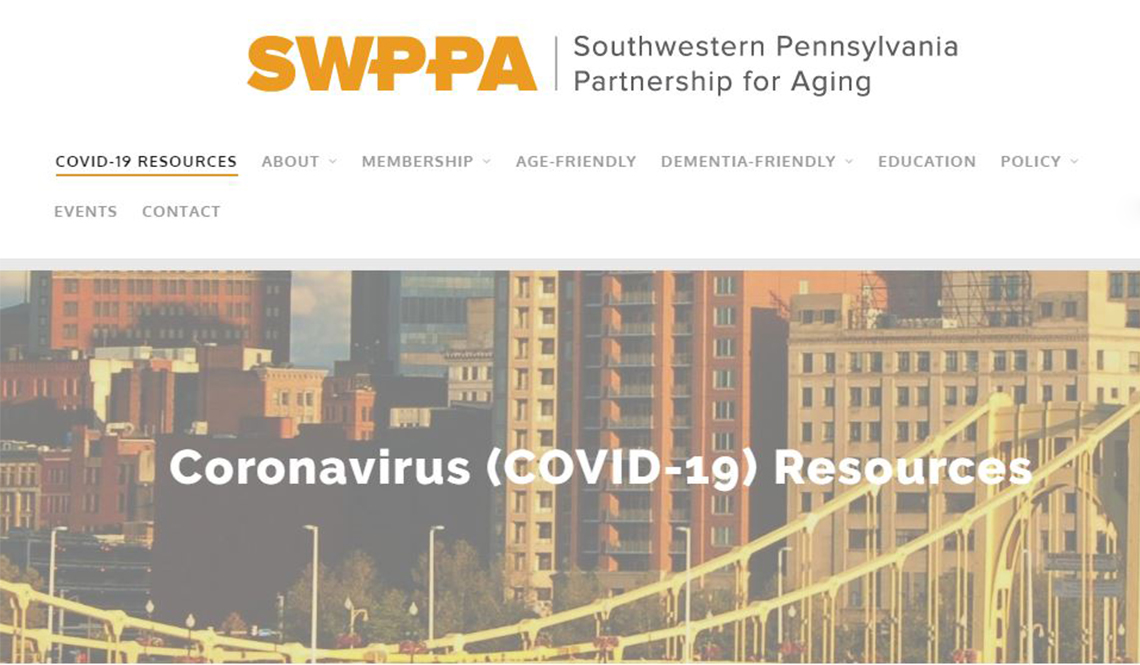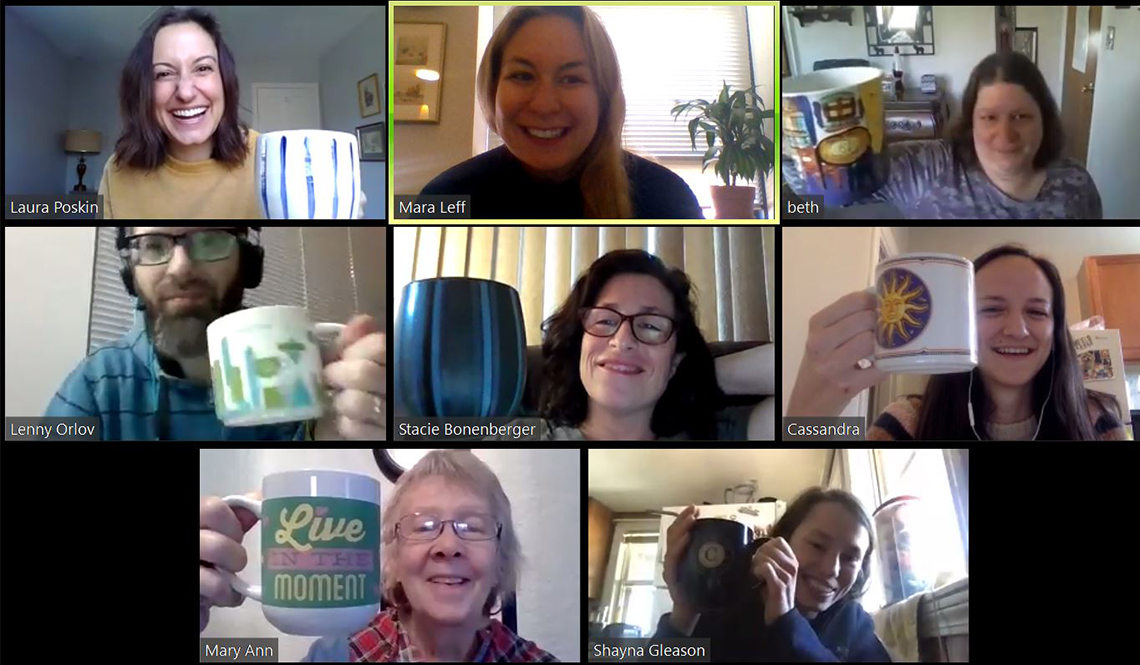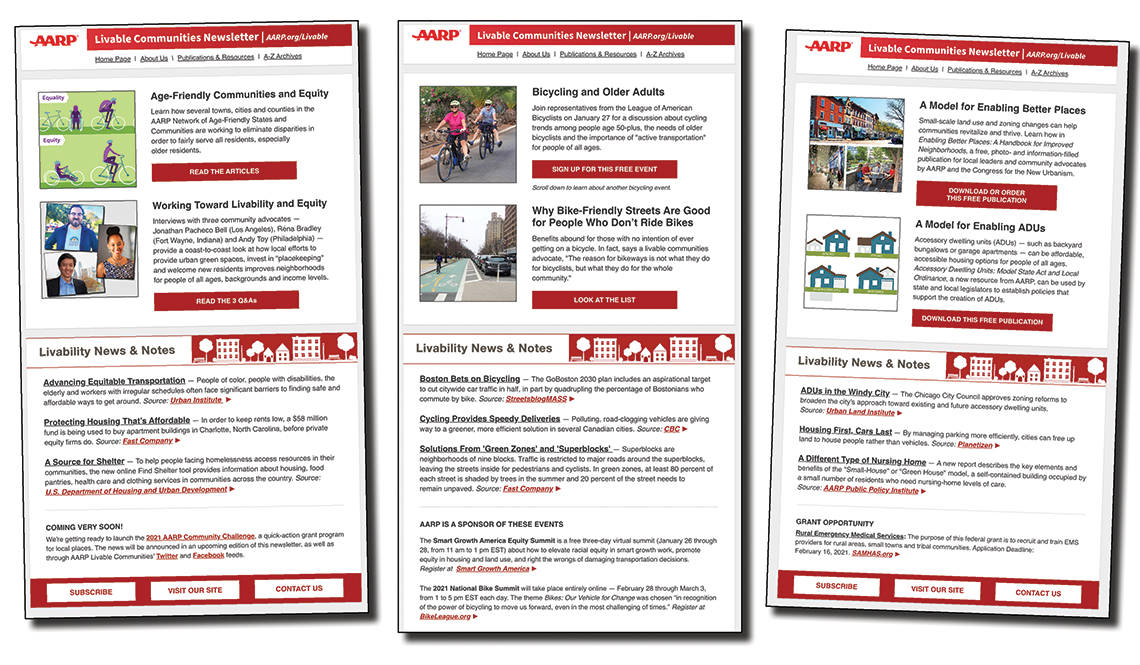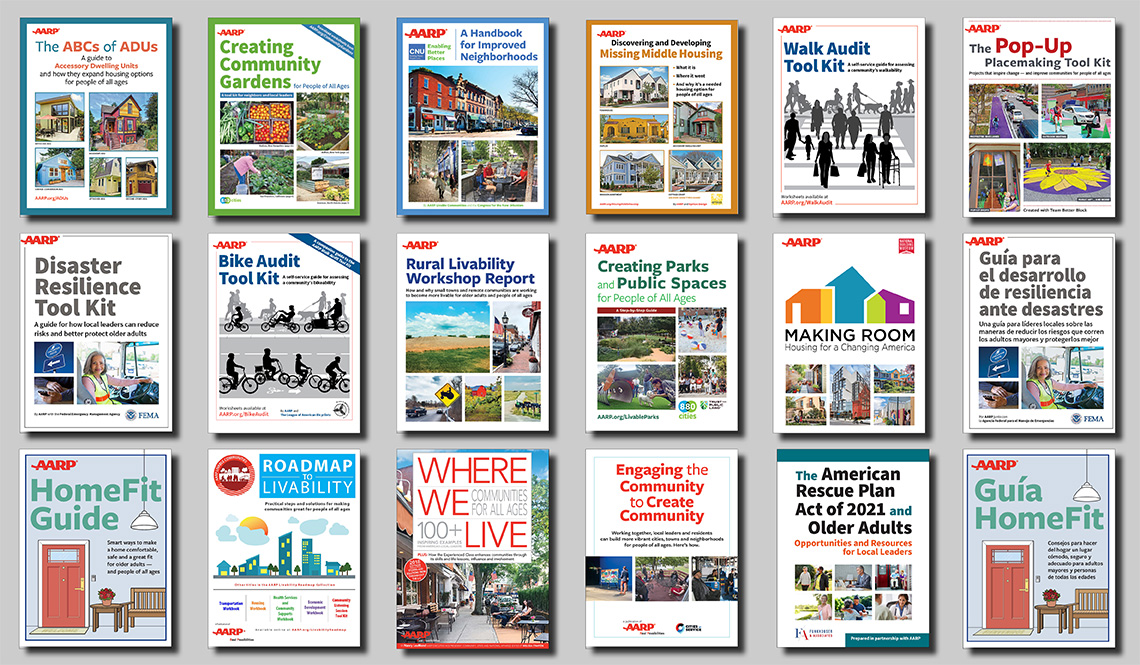Age-Friendly Pittsburgh and Allegheny County, Pennsylvania, Respond to COVID-19
A look at how the city and its surrounding county are serving and protecting its older residents
Allegheny County, Pennsylvania, is home to the city of Pittsburgh and 1.2 million people, 16.8 percent of whom are age 65 or older. Nearly half of the county’s residents age 75 or older live alone. The county and city each joined the AARP Network of Age-Friendly States and Communities in 2015.
The community's city-county effort, Age-Friendly Greater Pittsburgh, is an initiative of the Southwestern Pennsylvania Partnership of Aging (SWPPA) and is funded by the Henry L. Hillman Foundation.
Community Representative:
- Laura Poskin, Director, Age-Friendly Greater Pittsburgh, explains how age-friendly leaders from the city of Pittsburgh and Allegheny County are helping older residents stay safe during the coronavirus pandemic.
(Information provided to AARP on May 18, 2020)
The Challenge
"Leaders from Age-Friendly Greater Pittsburgh are local leaders in transportation, housing, volunteerism, caregiver support — you name it. So, our collective response addresses a variety of challenges with a focus on access to basic needs and social connectivity."
The Response
"In response to food security, our age-friendly leaders have been distributing food and supplies through existing programs while ramping up services and modifying the services to meet new needs.
"United Way of Southwestern Pennsylvania is partnering with our local paratransit service, ACCESS, to deliver thousands of meals and truckloads of supplies, such as personal protective equipment. Although ACCESS still offers rides to essential appointments, like dialysis, they are using their fleet of vehicles, operators, technology and expertise to create routes that move food and supplies — rather than people — as we all stay home.
"In addition, Wesley Family Services' In Service of Seniors program — which coordinates volunteer support for older residents, among other services — continues to deliver food and provide information by phone and email. Wesley has shifted to coordinating phone visits, rather than in-person visits, for seniors.
The Focus Area
"Another stand out project is the Virtual Senior Academy, a project of the Jewish Healthcare Foundation. With senior centers and other recreational centers closed, plus limits on in-person engagement and interaction, there are increased concerns about the health and well-being of older adults due to social isolation and loneliness. The current situation has provided an opportunity for ramped-up programming on Virtual Senior Academy, and to increase our intergenerational programming.
"Organizations across Allegheny County and the city of Pittsburgh have come forward to offer programming virtually on the platform, for anyone from older adults to families with small children. The Virtual Senior Academy is completely free, and while it was started for people age 50 or older, since COVID-19 people of all ages are invited to sign up.
"Courses include topics such as health and wellness, arts and music, book clubs, history and current events. The courses are interactive and offered in real-time throughout the day. As noted on the program's website: 'If you’re looking to expand your horizons and make new friends, Virtual Senior Academy is for you!'
"Since March, Age-Friendly Greater Pittsburgh has been hosting virtual #CoffeeConnectPGH sessions every other Thursday. Before COVID, these events were usually held in coffee shops, with the purpose being to get neighbors off of their devices and talking to one another. This virtual approach has been surprisingly satisfying, generating conversation and support among neighbors, many of whom are meeting for the first time.
Response Partners
"Similar to our in-person sessions, #CoffeeConnectPGH sessions are casual. We want long-time residents and newer residents to mingle one-on-one, and for conversations to spark naturally. We have had a wide range of participants, including a mom in her 30s bring her one-year-old, and a participant in her 70s, celebrating her 50th college reunion that week."
"When hosting our group sessions on Virtual Senior Academy, I facilitate so everyone has a turn to talk and listen. I’ll pose questions ('What is your favorite coffee shop, and what do you order? What’s a highlight from your last 24 hours?') and we’ll go around, typically in alphabetical order down the participant list.
"We generally have between eight to 10 people each session, which is a good number for meaningful dialogue. My favorite conversation came from the question: 'Who is someone "new" you’ve met or reconnected with during the pandemic?'
"Sure, we are in touch with family and close friends, but new relationships are, seemingly, trickier right now. The answers were fascinating! A former flame, a new neighbor, a distant cousin at the Passover Zoom, a person from Belgium through Quarantine Chat, and more. Everyone had a story of meeting someone new. It was so special to have the opportunity to share that.
The Results, Thus Far
"Overall, our leaders have been distributing food and supplies, adapting building protocols based on best practices, engaging volunteers for socially-distant neighborly assistance, and sharing resources to keep people of all ages safe, informed and engaged.
"It's been amazing to see how quickly our service providers pivoted their work and rose to the new challenges. Wesley Family Services: In Service of Seniors has had more than five times the enrollment of new volunteers. With this extra support, seven weeks into this crisis, Wesley Family Services and its sister program at North Hills Community Outreach have completed 458 food deliveries — from pantries, grocery stores and other meal providers — and more than 800 check-in calls to older neighbors.
"For Virtual Senior Academy, the average classroom size has doubled from February to April, and new participant sign ups have increased by over 300 percent for the past two months. More than 1,000 people have accounts, with 92 accounts created since the start of stay-home orders in Allegheny County on March 23. The age range of users used to be 50 and older, but with new programs open to children, the age range is quite wide, with some of the programming for kids starting at ages five and up."
Research by Shosanna Preuss | Article published May 2020
- Learn about the AARP Network of Age-Friendly States and Communities
- Check out the network's Member List
- Connect with AARP Pennsylvania
- Read more about Age-Friendly Greater Pittsburgh
- Find more Age-Friendly Responses to COVID-19
Stay Informed
The weekly, award-winning AARP Livable Communities e-Newsletter provides local leaders with information and inspiration for making their town, city or neighborhood more livable for older adults and people of all ages. Subscribe today!
AARP.org/Livable
Enter a topic, name, place, etc.





